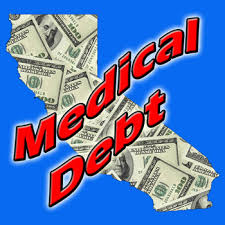

FICO 9 | Medical Debt and Your Credit Score
According to a statement made earlier this week by FICO, the company’s analytics are undergoing major changes that will affect the way medical debt is factored in to a person’s credit score. FICO 9 has arrived.
How Does Medical Debt Affect Credit Scores?
Credit scores are figured by looking at a person’s financial history, including any debts that they have accrued. In the United States, millions of Americans have medical debt, in some cases upwards of thousands of dollars, even though many are either privately or publicly insured. These debts, which were often the result of some unforeseen serious illness or injury, have traditionally had the potential to drastically lower one’s credit score.
Is Medical Debt An Accurate Indicator of Creditworthiness?
Of course, what a credit score really aims to do is assess an individual’s credit risk. This risk is more accurately assessed by the way a person uses their credit cards, takes out loans or miss payments on existing debts. Medical debt is unlikely to be a true indicator of spending habits: not only is it generally accepted to be not a want, but a need, most people find that the cost of healthcare services is often so inflated that they will go out of their way to be as cost efficient as possible (why there is such a market for generic drugs).
Changing Perspectives on Medical Debt
Recognizing this, FICO has stated that medical debt is perhaps not such a major indicator of one’s creditworthiness, and therefore, medical debts will be not be given the same weight as in previous years. While these debts won’t be forgiven (patients should stick to their payment plans) the existence of the debt won’t be regarded the same way as, say, carrying a high balance on a credit card.
What FICO 9 will do is disregard the debts that went to collection and were subsequently paid off or settled. In fact, research shows a large percentage of debts that go to collections are medical bills – and many of them were settled long ago but still linger on accounts.
When Will Consumers See Improvements on Their Reports?
While it’s unlikely that anyone’s credit score will improve by leaps and bounds, for those whose medical debts have been considerably lowering their score the changes could be immediately noticeable. An improved credit score also stands to improve one’s chances of applying and getting a loan or increase their credit limit.
Millions of Americans Carry Medical Debt
1.7 million Americans filed bankruptcy last year because of medical bills – more than any other reason – and that number is rising. One’s credit score only becomes adversely affected by medical debt when the hospital or doctor’s office has turned the bill over to a collection’s agency – at which point it makes its way onto someone’s credit history. Previously, any debt that landed in a collection agency could take up to seven years to disappear from your credit report. That’s nearly a decade of lowered scores because of a single occurrence. If FICO 9 stays true to its word and forgives medical debts from credit reports, that could make a significant difference to those who are currently drowning in unpaid medical debt. It’s early yet to tell if the new credit scoring model will stick, but for many American its a glimmer of hope in an otherwise dark and seemingly endless tunnel of medical bills and healthcare spending.